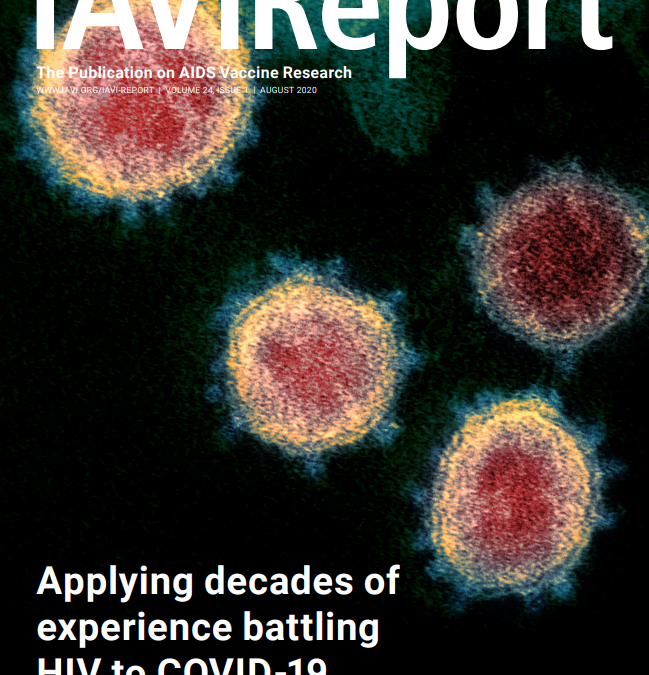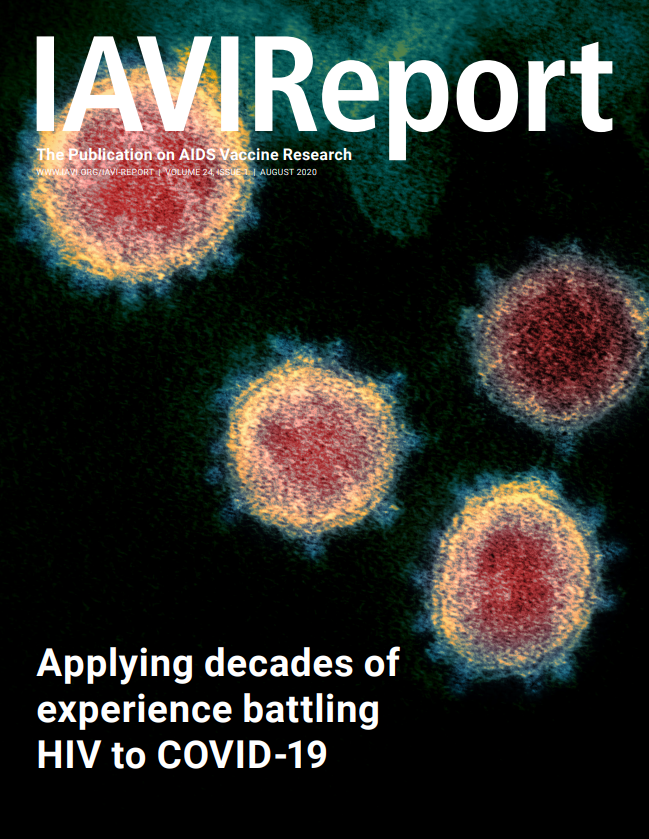When EpiVax CEO/CSO Annie De Groot began her decades-long focus on HIV vaccine research in the early 90’s, she couldn’t have predicted the implications for the COVID-19 pandemic…. Or perhaps she did!
Interviewed by Michael Dumiak for August 2020 issue of IAVI, Annie had a lot to share about how lessons learned researching HIV could and should be applied to the current crisis.
HIV is an especially nefarious virus, largely due to its ability to mutate quickly into new variants. That makes therapy development difficult, and HIV researchers have developed a LOT of processes and that can be repurposed to fight COVID-19.
In fact, the Johnson & Johnson SARS-COV-2 vaccine in the news just this week is an adenovirus-based vaccine (AD26). As Dan Barouch (Harvard Medical School) told IAVI back in August, research on AD26 as a viral vector began with HIV.
Looking to the future, learning from the past
Quoted for IAVI in June 2020, Annie accurately predicted the current state in February 2021, more than six months later.
“It’s not really fair to look back on these last five months and say that CoV-2 is not going to shape-shift. I think it will,” she says. “One vaccine will not be the solution. We will have to look at conserved epitopes, both B-cell and T-cell epitopes, and at how viruses escape immune defense.”
Annie and team members at EpiVax have been vocal about the need to consider T-cell activation as a correlate of immunity. While global researchers have a consensus that T-cell response is important, so far it has not received enough focus. Vaccine developers have mainly focused on antibody response. And while it’s admirable that we have several effective vaccines only one year after the pandemic began, the rise of SARS-COV-2 variants highlights the need for a T-cell epitope-based vaccine. EpiVax’s EPV-CoV19 vaccine candidate continues to make progress, with news on clinical trials anticipated for March 2021.
Unlike SARS-COV-1 which burned itself out in 2003, COVID-19 may continue to be a foremost concern for years to come. Now is the time to diversify vaccines and focus on generating long-term immune response to all virus variants.
And yes, we should still continue to draw lessons from the HIV research community, who have decades of experience understanding the complexity of how viruses can evade immune response!


